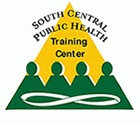
Managing and Motivating Effective Public Health Performance
Course Description:
This course is designed to provide knowledge of management and leadership. These two components of administration are important to the task of motivation. The understanding of the relationship among the topics will enable managers to effectively coordinate individual actions toward the accomplishment of organizational goals.
Target Audience
Academic Faculty/Staff, Federal Government Employees, State Government Employees, Local Government Employees, Non-Government Employees and Students
Learning Objectives
Module 1: What Management is and What Managers do
- Define what is meant by the term “management”
- Discuss what is meant by the process or functional approach to management
- Discuss what is meant by the “universality of management functions”
- Discuss what is meant by the “transferability of management skills”
- Describe how the skills required of managers changes as one moves up the organizational hierarchy
- Discuss an approach to management that is based on the roles managers perform
- Describe four “myths” of management
Module 2: The Mystical Reality of Leadership Part 1
- Provide a definition of leadership
- Discuss the trait and situational views of leadership
- Describe why leadership is so critical to effective change management
- Discuss the differences between leadership and management
- Illustrate the essential aspects of the language of leadership
Module 3: The Mystical Reality of Leadership Part 2
- Describe the trust cycle in leadership
- Define authority, power, accountability, and responsibility
- Explain why it is important for authority, power, accountability, and responsibility to be equal
- Describe the formal theory of authority
- Describe the acceptance theory of authority
Module 4: Theories of Motivation
- Compare the needs theories of Maslow, Alderfer, and McClelland
- Discuss the Two-Factor theory of motivation and explain why it involves job enrichment
- Differentiate between horizontal and vertical loading in job enrichment
- Discuss Operant Conditioning as a theory of motivation
- Compare and contrast continuous and partial reinforcement schedules
Instructor:

W. Jack Duncan, PhD
Dr. Duncan is Professor and University Scholar in Management in the Graduate School of Management, Professor of Health Care Organization and Policy and a Senior Scholar in the Lister Hill Center for Health Policy in the School of Public Health, and Professor of Health Services Administration in the School of Health Related Professions at the University of Alabama at Birmingham.
Available Credit
- 7.00 Participation/CETulane Professional and Continuing Education (PaCE) awards 7.00 hour(s) of credit for completing Managing and Motivating Effective Public Health Performance
Price
Required Hardware/software
System Settings
This course is designed to work most effectively if your computer and internet connection meet certain minimal requirements. This course can be accessed using a Windows 10 PC or a Mac with High Sierra1, Mojave, or Catalina. Pop-up blockers should be disabled when viewing the course. Internet Explorer 11 (for Windows 10), or the current version of Google Chrome, Mozilla Firefox, or Apple Safari (for Windows 10 and or Mac) is required. Many of our courses require Java and JavaScript enabled.
Links to External Websites
Links to websites outside this course will open in a new window or tab. Some browsers may minimize the course window. If this occurs, maximize the course window to return to the course.
Adobe Acrobat Reader (for desktops and laptops)
Adobe Acrobat Reader is required to access some documents in this course. If you need to download a free copy of Acrobat Reader, click here.
Internet Connection Speed
A minimum download speed of 1.5 Mbps is recommended for an optimal experience, which is commonly the speed associated with a basic DSL or a cellular/satellite connection. A faster connection, such as cable or fiber service, with further enhance your online experience. A Wi-Fi connection is generally acceptable, but it is dependent upon one of the two services mentioned above. You can check your internet connection speed at http://www.speedtest.net/.

 Facebook
Facebook Twitter
Twitter LinkedIn
LinkedIn Forward
Forward